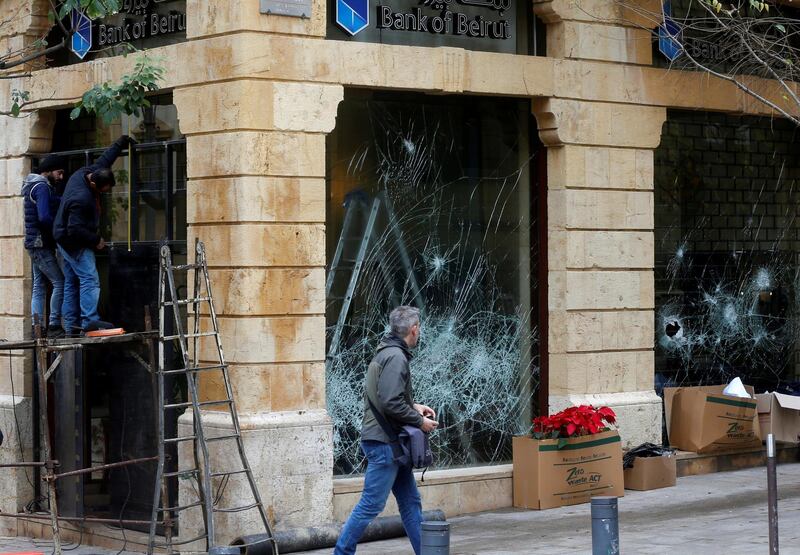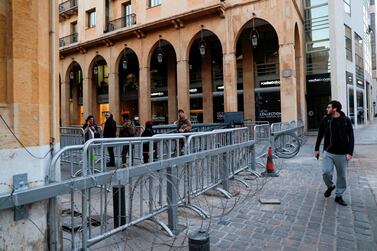Lebanon's non-oil private sector economy continued to deteriorate in January, weighed down by a contraction in output and employment amid continued political and economic uncertainty in the country.
The Blom Lebanon PMI index, a composite measure of business conditions in the private sector complied by IHS Markit, dropped to 44.9 in January from 45.1 in December, staying below the 50 mark that separates economic expansion from contraction.
The deterioration in private sector performance last month was partially driven by a contraction in output and a drop in new orders. The ongoing political instability and a severe liquidity crisis facing the banking sector in the country were also among the reasons surveyed panellists cited for the latest slowdown.
“January’s PMI results revealed several recessionary facets of the Lebanese economy going into 2020,” Fadi Osseiran, general manager at Bloominvest Bank, said.
The annual gross domestic product growth implied from the Blom PMI is estimated at negative 2 per cent in 2019 and was coupled with a stark increase in inflation, which reached 3.17 per cent in November.
The economy shrank at a rate of between 5-6 per cent in the fourth quarter following the commencement of protests in October, he noted.
"Investors’ confidence in the sovereign dimmed, with Lebanon’s five-year CDS [credit default swaps] hitting a historical high of 3,848 basis points by end-January,” Dr Osseiran said.
“In turn, the contractions in output and new orders remained notable while employee layoffs steepened during January, unveiling another sign of distress.”
Lebanon is experiencing its worst economic crisis since the end of a 15-year civil war in 1990, which gave rise to an unprecedented wave of public protests. Lebanese people blame the country’s political elite for widespread corruption and nepotism, which they say contributed to the country accruing $89.5 billion of public debt as of the end of November, equivalent to 166 per cent of GDP, one of the highest ratios globally.
A new government is now in place which pledged to tackle the country’s economic woes, but that has failed to quell public protests. People are demanding a government of technocrats to deal with the financial troubles faced by the country.
Banks in Lebanon are also facing a liquidity crisis. Lenders have imposed informal controls on withdrawals and transfers of dollars abroad since September. Now they have halved the amount of US currency customers can withdraw every month. Withdrawals have generally been capped at about $1,000 a month. Some lenders who previously allowed withdrawals of as much as $2,000 a week have now capped the rate to about $200 per week.
Limits on capital, coupled with a sharp fall in Lebanon's currency that has lost a third of its value against the US dollar on the black market, is further fuelling public anger.
The current sequence of staff cuts — another source of public discontent — has extended to five months. The rate of job cutting last month accelerated from December and is broadly in line with November's record job losses.
Demand conditions in the private sector economy also continued to soften, with new orders falling for the 80th month in a row. The rate of contraction was little-changed from December but was historically steep, according to the PMI survey.








